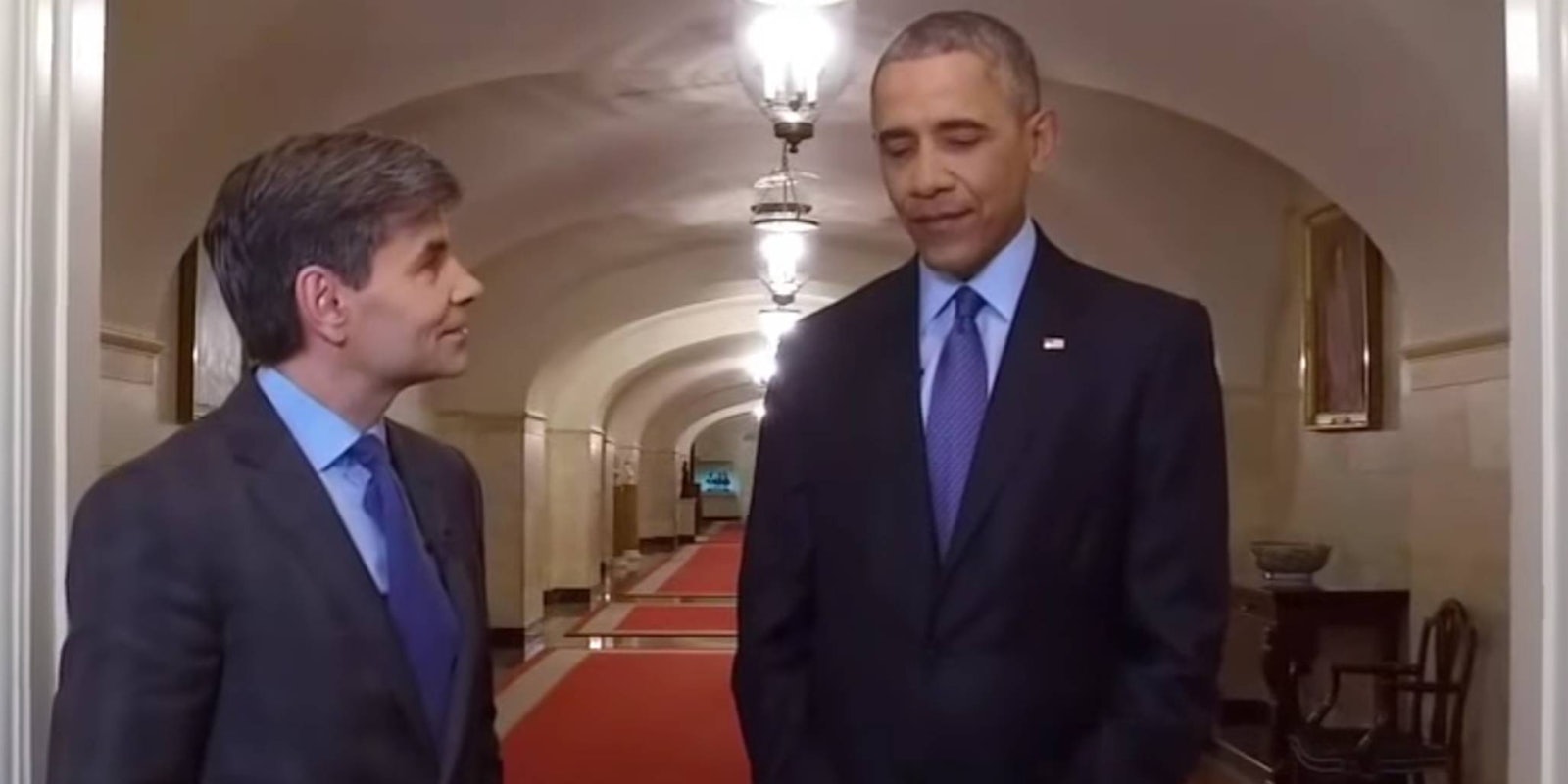President Obama told ABC News’s George Stephanopoulos on Sunday morning that even though he didn’t underestimate Russian President Vladimir Putin and the Kremlin’s ability to hack the 2016 election, he didn’t realize how much of an impact “fake news” could have.
Obama said he’d underestimated the potential for electronic tampering and misinformation to “insinuate themselves into our Democratic processes.”
“The issue here is you have I think the clear example of how, if we’re not vigilant, foreign countries can have an impact on the political debate in the United States in ways that might not have been true 10, 20, 30 years ago—in part because of the way news is transmitted and in part because so many people are skeptical of mainstream news organizations that everything’s true and everything’s false,” Obama said. “Nothing is settled. Everything is contested.”
Obama also emphasized the alleged actions of Putin and the Russian government in meddling with America’s election are the kinds of things former Russian satellite states—and even democracies in western Europe—will increasingly have to worry about when elections roll around.
“Part of the reason that I ordered this report was not simply to re-litigate what happened over the last several months, but rather to make sure that we understand this is something that Putin has been doing for quite some time in Europe—initially in the former satellite states where there are a lot of Russian speakers, but increasingly in Western democracies,” Obama said. “There are gonna be elections coming up among our NATO allies that we have to pay attention to. I anticipate that this kind of thing can happen again here.”
Stephanopoulos also asked Obama about President-elect Donald Trump‘s ongoing use of his personal Twitter account, although that won’t be the only account he controls once he enters the office—the official @POTUS account will be turned over to him as well.
During the past few weeks, in addition to his typically bombastic and occasionally inflammatory tweets, he’s also had a big impact on the stock value of major corporations by criticizing them. Stephanopoulos asked Obama whether Trump’s seemingly compulsive tweeting habits were “a good idea,” and although he answered cagily, he was plainly skeptical.
On the one hand information is moving quick, or the way in which people consume information is changing so fast. Clearly this worked for him, and it gives him a direct connection to a lot of the people that voted for him. I’ve said to him, and I think others have said to him, that the day that he is the President of the United States, there are world capitals, and financial markets, and people all around the world who take really seriously what he says. And in a way that’s just not true before you’re actually sworn in as president.
Obama also acknowledged to Stephanopoulos that his campaign rhetoric about all his achievements being undone by a Trump victory may have been somewhat exaggerated, because congressional Democrats (and citizens who benefit from the programs he launched) will fight to defend them. He did, though, make it clear that the risk it’ll all disappear is altogether real.
“No,” he said, when Stephanopoulos asked him if his achievements were sure to fall. “I think that the risk to all the progress we’ve made was at stake in the election because not just the president-elect, but a lot of members of Congress, including now the speaker of the House [Paul Ryan] and the Senate majority leader [Mitch McConnell], have said that their principal agenda was to undo a lot of this progress.”
Sunday’s interview was one of the last Obama will perform as president, as he now has less than two weeks left in office. His farewell address to the nation is scheduled for Tuesday, and on Jan. 20th, he’ll depart from public life and hand the reins of power to Trump.


